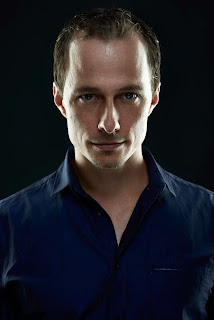Com certeza um dos livros mais divertidos que li nos últimos anos…
Trash at its best!!!!!!!
"Little Me: The Intimate Memoirs of that Great Star of Stage, Screen and Television as told to Patrick Dennis", ou simplesmente
"Little Me".
Antes de “tertuliar” rápidamente sobre este livro, algumas palavras sobre seu genial autor;
Patrick Dennis, para muitos conhecido pelo livro “Auntie mame” (e posteriormente pela peça teatral e pelo filme “Auntie Mame” com a deliciosa
Rosalind Russel assim como por “Mame”, o musical da Broadway estrelado por ninguém menos do que a maravilhosa Angela Lansbury e depois filmado com Lucille Ball).
Dennis (ou melhor, Edward Everett Tanner III) tornou-se uma sensação ao publicar
„Auntie Mame“ (que passou 112 semanas consecutivas na lista dos „Bestseller“ e vendeu mais de 2 milhões de cópias em cinco idiomas), apesar deste ter sido recusado por uma série de editoras.
No auge de seu sucesso mais de 1.000 cópias de “Mame” eram vendidas por dia… Da noite para o dia ele tornou-se um milionário!
Em 1956, com
“Auntie Mame” e também
“The Loving Couple: His (and Her) Story” e “
Guestward, Ho!”
Dennis tornou-se o único escritor da história a ter tres livros na lista de Bestsellers do
New York Times - ao mesmo tempo!
Seu trabalho porém saiu de “moda” nos anos 70 e ele arruinou-se financeiramente. Dennis, que nunca acostumou-se ao fato de ter perdido todo sua fortuna e investimentos, queria manter sua vida na "alta-sociedade”.
Por esse motivo tornou-se um mordormo.
Emprego este que, segundo seus amigos, lhe divertia imensamente.
Ele inclusive trabalhou para
Ray Kroc, o fundador do “McDonald’s”. Já que usava seu nome verdadeiro, este parecia mais funcionar como uma espécie de pseudonimo… nenhum de seus patrões jamais fez a associação entre “Tanner” e o (mundialmente famoso) autor Patrick Dennis…
Ele, um incurável snob intelectual, foi uma vez ouvido ao se referir a seu patrão (Kroc) e seu círculo social:
“Jamais conversaria com esta gente, isto me é felizmente poupado na minha afortunada posição no momento. Não me importa servi-los mas sim me incomodaria muito ter que conversar com eles”.
Este excêntrico genio faleceu aos 55 anos de idade de cancer pancreático…
Na virada do milênio houve uma espécie de “renaissance“ de interesse sobre seu trabalho e, graças a Deus, muitos de seus livros podem ser novamente obtidos... mesmo assim consegui uma cópia da edição original de
«Little me» que me foi enviada por correio de um «sebo» que se encontra em Canberra e que me fornece assíduamente «maravilhas literárias» que já há muito foram olvidadas...
“Little me”, como contado (na primeira pessoa) para Patrick é uma paródia sobre aquelas “auto-biografias cheias de confissões”, de uma série de celebridades dos anos 40 e 50 que descreviam suas jornadas pela vida numa espécie de frenesi, delírio à la “personalidade e carisma passando por cima de obstáculos”...
A “autobiografia” de “Belle Poitrine” (em portugues “belo peito”) sobre sua jornada, seus sucessos (pouquíssimos), seus fracassos (muitos) e sua incapacidade de reconhece-los como desventuras (muito pelo contrário). Ela é uma espécie de fútil Zsa Zsa Gabor, uma loura que é excessivamente desenvolvida (físicamente, «toráxicamente», if you know what I mean… ) além de extremamente egocentrica e sobre-exposta, assim como totalmente sem pistas ou noções sobre arte dramática - sem nenhum talento!
O começo do livro, delciosamente escrito, nos prende por completo: Maybelle Schlumpfert (antes de transformar-se na “diva” Belle Poitrine), descreve sua infancia e sua pobre casa, na qual mora com sua mãe. Situada num pobre bairro e bastante pequena.
Mesmo assim ela se orgulhava da linda decoração feita por sua senhora mãe – e comenta do como suas amigas da escola teriam admirado o impecável gosto e requinte com que a casa foi arrumada. Então ela nos obriga a ler uma lista de Bric-à-brac e outras peças de gosto questionável, culminando com um abat-jour na janela da sala, sobre o qual sua mãe colocou um lindo lenço vermelho que "dava à sala um lindo toque de cor-de-rosa”… assim somos introduzidos à “profissão” de sua mãe…
Só há uma palavra para descrever este hilário trabalho: bawdy (lascivo, irreverente, indescente, obsceno) e mesmo assim muito cheio de humor, na verdade hilário…
Mas isso não é tudo: paralelamente ao livro, Cris Alexander fez um trabalho fotográfico maravilhoso sobre a trajetória de “Belle” que foi integralmente incluído no livro – este trabalho combina fotos retocadas do início do século (como fundo para montagens) em contraste com as “atuais” que exibem amigos, a família de Dennis, inclusive Louise (a esposa de Dennis), seus filhos, uma empregada, o bailarino Shaun O’Brien (o amante de Dennis), a comediante Alice Pearce, o “beefcake” Kurt Bieber e as atrizes Dodie Goodman e Jeri Archer – a última criando “Belle”.
Muitas fotos foram consideradas na época “risqué” e foram censuradas. Estas foram infelizmente perdidas durante os anos em que este livro "sumiu" das prateleiras...
A linha dramática do livro não é realmente o que mais importa – uma espécie de “dos trapos e farrapos às riquezas aos trapos e farrapos de novo e de volta às riquezas” (os “ups and downs” financeiros de Miss Poitrine) - porém seu tom “meigo e honesto”.
Só para citar um exemplo e me fazer mais compreensível:
no início do livro, ao sermos apresentados à Belle, uma candida Miss Poitrine nos conta que nasceu em 1900 e que cada capítulo do livro envolve uma década de sua vida…
Ao chegarmos ao sexto capítulo lemos o título: “Frankly forty”…
Eu adiciono: “Francamente, Belle is cult!”.
P.S. “Little me” fo transformado num musical, que abriu no Lunt-Fontanne Theatre (NY) em 1962 (roteiro de Neil Simon e música de Cy Coleman) que teve uma bonita e longa temporada por 257 espetáculos…
Despertei sua curiosidade?













.jpg)







